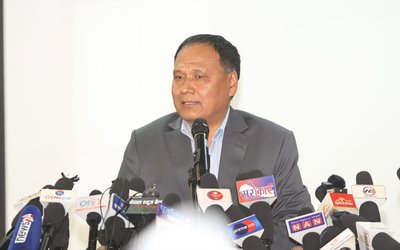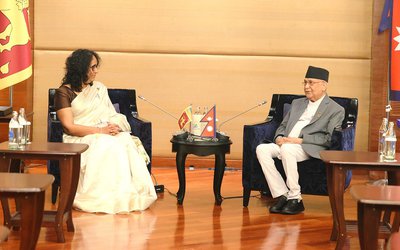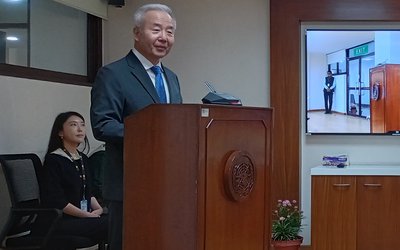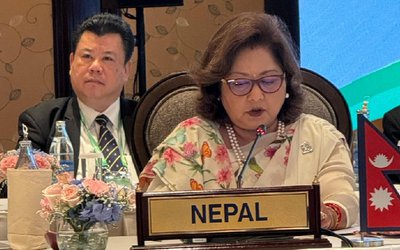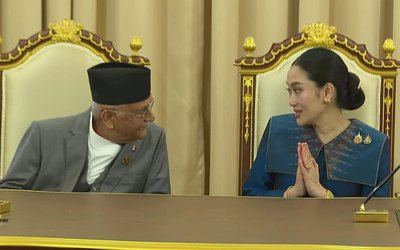
Although Nepal Government has maintained its neutrality over the border disputes between two of its immediate neighbors, the standoff will intensify their security concern in Nepal and an unexpected internal turmoil may be likely.
As Nepal has been passing through its own internal political disorder with restructuring of state institutions, including the local level administrative and internal security units, credible institutions to allay the concerns of the two neighbors are far from ready.
India, which has been always wary about Chinese activities in Nepal as a major threat to its security, has revived its intelligence wing to closely monitor Nepal’s internal situation.
According to Indian media reports, India has revived its five-decade-old intelligence and combat units in order to keep a tab on Chinese maneuvers in countries like Nepal and Bhutan. The separate units will be part of the Sashastra Seema Bal (SSB), which guards the borders with the two countries.
According to Russian Media Sputnik, in December last year, Sputnik had reported that the Indian government was considering to revive the 50-year-old SSB intelligence wing, following increased Chinese activities in New Delhi’s extended neighborhood. The action was initiated after SSB had raised concerns before the government about China's project development and other activities across the border.
"The border [with Nepal] is very sensitive and the influence of elements of various types in these areas has mushroomed… we have proposed to have our full-fledged intelligence wing in the force," Archana Ramasundaram, Director General, Sashastra Seema Bal, said back then.
“The decision to raise combat intelligence services is based on the 54-year-old Special Service Bureau which worked on the principle of 'recruit locally, train locally and deploy locally'. The new service will have a larger objective than its predecessor and it is most likely that the forces belonging to this service would be deployed in the neighboring countries in quest,” writes Sputnik.
Although Chinese have not officially announced deployment of any such security agencies, they will likely respond given their concern on the large number of Tibetan Refugees living in Nepal and India and open border between the two.
Chinese security experts see Tibetan Refugees and open border between Nepal and India as a major threat to their soft security belly. With a long political interference, Nepal’s only internal security wing is stuck in promotion row. Although new home minister Janardan Sharma Prabhakar promoted all the senior officers in vacant posts, it will take months to see the results in the field.
Given Nepal’s growing international connections and open border over 1600 kilometers, Nepal’s two neighbors will likely intensify the subversive as well as open activities.
“In the fifty years long history of state building in Nepal, this is one of the most fragile periods. As Nepal’s political and internal security position is in the process of evolution, it will be natural for two neighbors to rely on their own apparatus,” said a senior retired police officer on condition of anonymity.
Nepal’s Position
With equally good relations with both the neighbors, Nepal has maintained its neutrality in these disputes. Despite the standoff taking place just a few hundred miles away from Nepal’s border, Nepal has just remained is tight lipped.
Following the standoff in India China border, Nepal’s foreign minister and deputy prime minister Krishna Bahadur Mahara paid an official visit to India and vice President Nanda Bahaur Pun visited China.
As the reports come out, Prime Minister Sher Bahadur Deuba is preparing for his first visit to India upon the invitation of Indian prime minister Narnedra Modi in the middle of August.
“Nepal has good relations with both the neighbors. We hope that the border disputes between the two neighbors will settle soon and there will prevail peace and tranquility in the region,” said a senior official at the Ministry of Foreign Affairs asking not be named.
Although officially India has not said anything about Nepal, Indian media see Nepal’s position with suspicion blaming it for playing “China Card.” Given the weak government and fragile political situation, Nepal does not have any one to assure credibly to India and China that Nepal cannot play on against the other.
With suspicious remarks coming in the media, Nepal’s position is much vulnurable in the present context.

Keshab Poudel
Poudel is the editor of New Spotlight Magazine.
- FM Dr. Deuba’s India Visit: Mission Aborted
- Mar 26, 2025
- AMBASSADOR MAEDA TORU: Warm Regards
- Mar 24, 2025
- PRO-MONARCHY MOVEMENT: Rising Dissatisfaction
- Mar 23, 2025
- Dr. PRABIN MANANDHAR: Person With Humility
- Mar 16, 2025
- US SUSPESION OF GRANT: Impact On Nepal
- Mar 10, 2025
